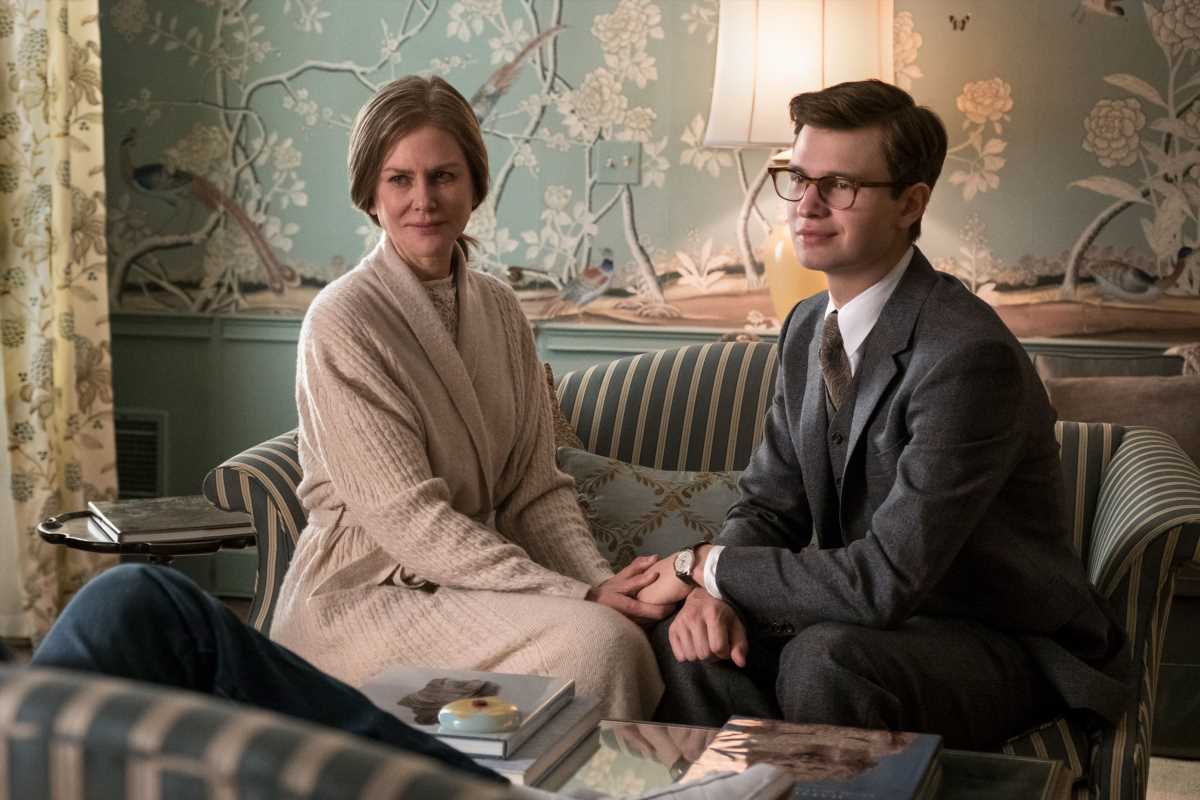To the list of great books mangled by Hollywood — F. Scott Fitzgerald’s The Great Gatsby, Tom Wolfe’s The Bonfire of the Vanities, and, OMG, Ayn Rand’s Atlas Shrugged — add Donna Tartt’s The Goldfinch. This cinematic assault on Tartt’s 2014 Pulitzer prize-winning novel would seem to have everything going for it: a classy cast (Nicole Kidman, Ansel Elgort, Luke Wilson, Jeffrey Wright, Sarah Paulson); the acclaimed Irish film and theater director John Crowley, fresh off his Best Picture nominee Brooklyn; Oscar-nominated screenwriter Peter Straughan (Tinker Tailor Soldier Spy); and peerless camera magician Roger Deakins. How could these paragons go wrong?
For starters, Tartt’s nearly 800-page opus does nor squeeze easily into a conventional two-hour running time — you watch The Goldfinch thinking how much better it might have been as a long-form miniseries. As it is, Straughan appears to be adapting the Cliff’s Notes version of the book instead of the book itself, producing an unplayable series of scene snippets. The timeline is borderline random, leaving the chronology in a chaotic jumble that defies reason.
The Goldfinch begins in Amsterdam, where Theo (Elgort), the brooding, near-suicidal protagonist, is in crisis. He must decide, like Tartt’s hero David Copperfield, whether he shall turn out to be the hero of his own life or whether that station will be held by anybody else. Suddenly, the plot flashes back eight years, and Theo is a boy (Oakes Fegley) strolling through New York’s Metropolitan Museum of Art with his mother. Just as his attention is caught by a young redhead named — Dickens again — Pippa (Aimee Laurence), a terrorist bomb goes off. The explosion leaves Theo motherless and in possession of “The Goldfinch,” a 17th-century masterpiece by painter Carel Fabritius. The bombing opened the novel with a vivid, powerful urgency. The film, however, makes us wait till the end to see and understand the attack in full, not to mention why Theo holds onto the painting. By then, the burden of exposition may leave you too exhausted to give a damn.
Young Theo is taken in by the Barbours, the family of a wealthy schoolmate. He also gets to visit Pippa, who was wounded in the explosion and is now in the care of Hobie (Wright), an antique furniture expert whose craft Theo admires. Mrs. Barbour (Kidman doing what she can to add substance that the script fails to provide) loves Theo’s intellectual curiosity and mothers him like one of her own. But then Theo’s ne’er-do-well dad Larry (Wilson) shows up with his latest conquest Xandra (Paulsen, clearly savoring the role) and drags the reluctant Theo off to Vegas. There he meets Boris (Finn Wolfhard of Stranger Things), an abused Russian kid and welcome livewire who teaches him about sex, drugs and theft.
When things get out of hand, Theo bolts for New York, where he moves in with Hobie, learns that his true love Pippa is engaged and reconnects with the Barbours. Eventually, a grownup Boris (Aneurin Barnard) shows up with connections to the Russian mafia and news about “The Goldfinch” that surprises Theo.
Sad to say, there are no surprises for audiences in The Goldfinch. Sure, it’s gorgeous to look at. But the beauty of the costumes and production design merely create a gilded cage for gifted actors who appear and disappear at the director’s will, while given scant opportunity to develop characters that might resonate. The only achievement in transferring The Goldfinch from page to screen is that it’s a botch job for the ages.
Source: Read Full Article
